 By: Adela Azin
By: Adela Azin
Translated by: Mohamamd Sakhi Rezaie
She has recently disclosed mysteries of her life and has talked about violence she has experienced in her life. She went to Iran due to threats she faced in Afghanistan by Taliban and her husband’s family, and makes a living working as a tailor in Iran. Mahtab Eftekhar, a female journalist and women’s rights protestor against Taliban’s policies on Afghan women, lives in a rental house along with some other women protestors. She suffers from heart disease and back pain. But she must work to afford her life as a female refugee in Iran. Mahtab said when she separated from her husband, Taliban gave the guardian of the children to their father. Her husband wants to marry her child daughter, Zahra, with Mahtab’s nephew to prevent escaping his children from home. Zahra, 13, paints as a hobby, and completed 6th grade last year and she is deprived of education after sixth grade by the Taliban verdict.
Mahtab Eftekhar was 10 when she was forced to marry. Her father passed when she was 1 year old and she started carpet weaving when she was 4. At 10, she was a skilled carper weaver and she also went to school. “I was happy because I could go to school though I was weaving carpet.” She states.
Mahtab was one of the top students in her class and wished to work as a announce in a visual media. This made her to practice speaking in front of a mirror. When graduated from grade 3, her mother and aunt told her they shall go to Helmand province to attend her elder brother’s wedding. Although, she did not like it, but she finally agreed, because it was a good idea, because she was free for some days and did not need to weave carpet. When she arrived in Helmand, she faced a young violent man and her family members told her that this man was her husband. “He is your husband and you should accept him.” They told her. She discovered later that as her brother did not have money, he had exchanged her with his wife for his cousin. After that, Mahtab, 10, had to live with a violent young man under the same roof and experienced hardships which were beyond her capacity. Whenever she asked her father and mother-in-law, to help her and send her to her mother’s home, they only beaten up her.
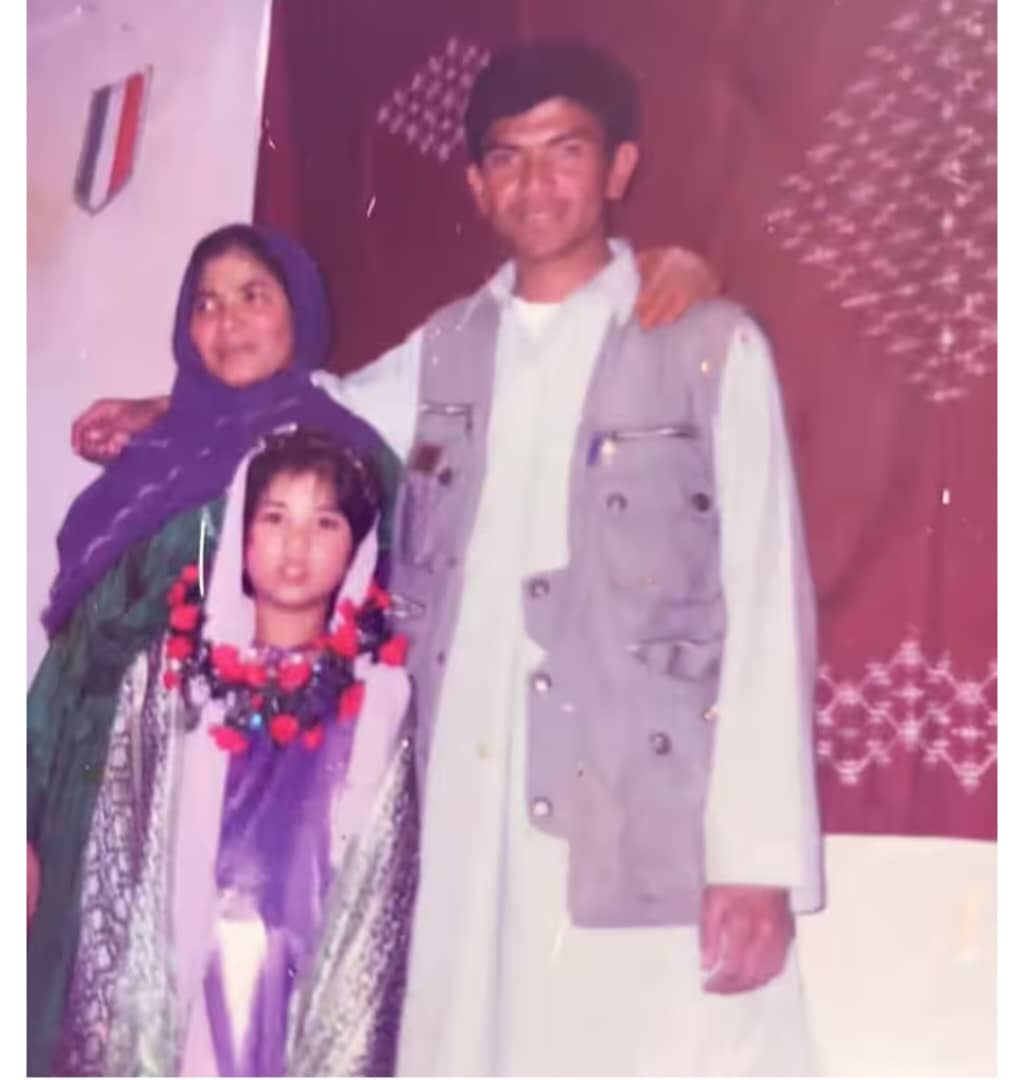 Mahtab was pregnant after one year of forced marriage and then her husband’s family brought her to Kabul and she gave birth to a baby girl when she was 12. Her child was a toddler with disability. Then she gave birth to two baby girls and both of them died due to illness. Mahtab said she did not have healthy infants for being underage and lack of taking enough nutrition when she was pregnant and as her infants were baby girls, her husband’s family did not take them to doctor for treatment. “When you give birth to a baby boy then we will take you to a doctor.” They told her.
Mahtab was pregnant after one year of forced marriage and then her husband’s family brought her to Kabul and she gave birth to a baby girl when she was 12. Her child was a toddler with disability. Then she gave birth to two baby girls and both of them died due to illness. Mahtab said she did not have healthy infants for being underage and lack of taking enough nutrition when she was pregnant and as her infants were baby girls, her husband’s family did not take them to doctor for treatment. “When you give birth to a baby boy then we will take you to a doctor.” They told her.
Mahtab, after giving birth to her fourth baby girl, escaped from her husband’s home to Kabul in order to take care of her child and save her life. Mahtab’s father and mother law came from Helmand to Kabul to take her back home; but she was enough brave now and said she wanted to stay in Kabul because she had experienced too much domestic violence in Helmand. Consequently, her husband decided to stay in Kaul with her. After passing several years, her son, Abulfazl, was born. At this time, Mahtab was 23 and to achieve financial independence, she started working as a tailor and hair dresser. Although, she loved to continue her education, she supported her daughter, Zahra, to study. Mahtab only could buy books, especially books on human rights, in order to be more aware of their rights and protect them in a better way.
Mahtab taught her daughter Zahra songs since she was four-five years old and took her in the media to make her success shorter. At the age of six, she registered her in school and every day she learned new things, she also taught Zahra. She took her daughter to tailoring and hairdressing salons and wanted to complete the half-finished dreams of her mother; But the members of her husband’s family, who had seen her bravery, always told her husband not to leave Mahtab in the community, so that she would not tell others about the troubles that had happened to her at their home in Helmand. According to Mahtab, her husband had little income and despite the violence imposed on Mahtab, he had to allow her work outside to earn money. With the smallest capital, Mahtab opened a hairdressing salon and with the income she received from this way, she provided the cost of Zahra’s language, painting and school education and the cost of living for his little son Abulfazl.
In order to get rid of her husband’s violence, Zahra repeatedly referred to the Human Rights Commission and human rights advocacy organizations during the Republic government and during the time of the Taliban, she referred to the police station of this group. But none of them could reduce her husband’s violence against her; until she had to open a divorce case. “I didn’t decide to divorce and I was fighting until my daughter grew up and when I got tired of being beaten, I had to think about divorce.” Mahtab says that her husband’s violence and beatings increased when the Taliban returned to power, and her husband used to taunt her saying, “Where are your human rights organizations?”
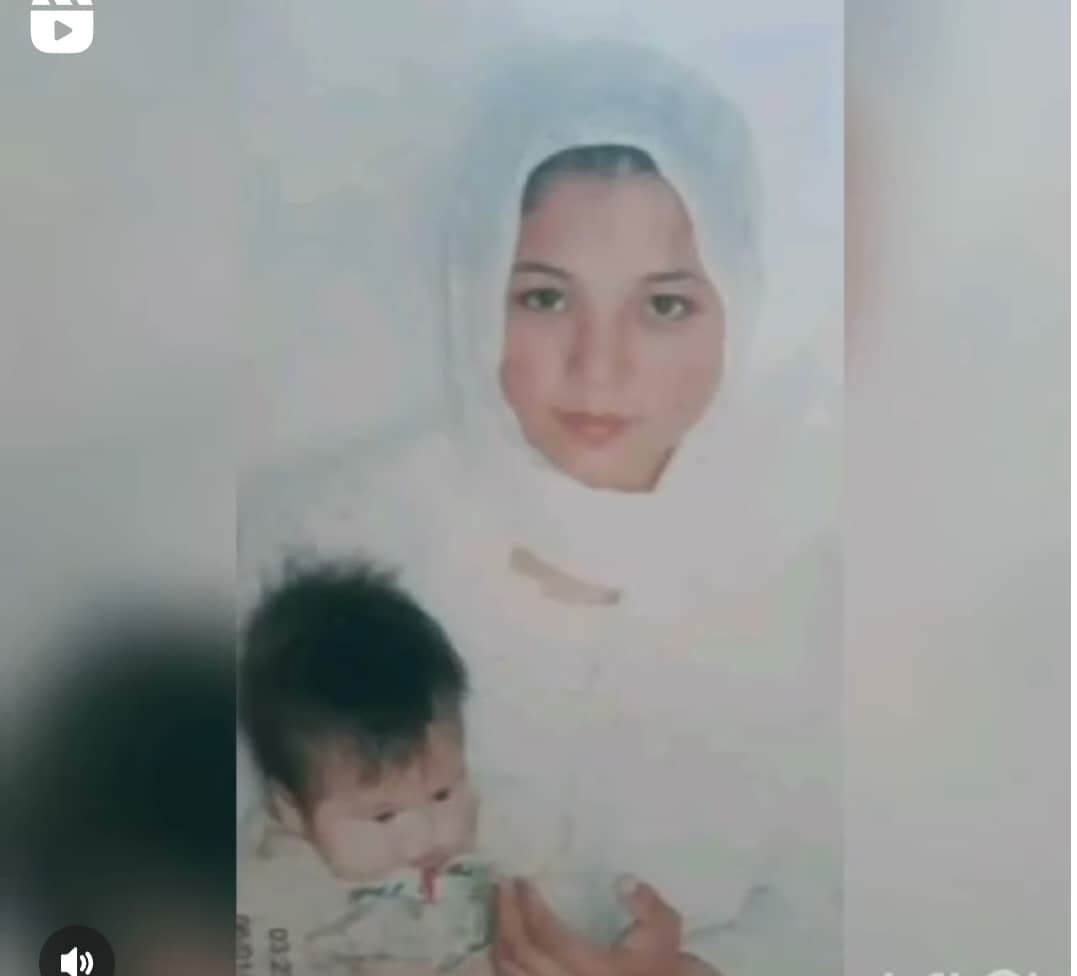 Finally, the Taliban gave Zahra and Abulfazl to her father in a divorce case, and her father took them to Helmand. Mhhtab, whose mother’s seal does not allow her to be in peace, goes to Helmand after a while to escape her two children, and she coordinates with her daughter via her small phone and elopes them both. On the Kandahar-Kabul route, the Taliban stopped the car carrying her. She waits for an hour for her mother-in-law and sister-in-law to arrive, and as soon as they arrive, they throw stones at the her.
Finally, the Taliban gave Zahra and Abulfazl to her father in a divorce case, and her father took them to Helmand. Mhhtab, whose mother’s seal does not allow her to be in peace, goes to Helmand after a while to escape her two children, and she coordinates with her daughter via her small phone and elopes them both. On the Kandahar-Kabul route, the Taliban stopped the car carrying her. She waits for an hour for her mother-in-law and sister-in-law to arrive, and as soon as they arrive, they throw stones at the her.
Because of the kidnapping of her children, the Taliban held a field trial for her; But as soon as they realized that these two children are her children, they leave them to Mahtab. Then Mahtab moves to Kabul but is unaware that her husband has already arrived in Kabul from Helmand and has thrown himself down from the mansion wall and is waiting for Zahra. As soon as Mahtab enters the house, her husband, who is already separated, takes them to Helmand and based on Mrs. Mahtab’s statements, her husband took Zahra’s phone due to the fear of her children running away again and wants to marry her to her uncle’s son.
Zahra, 13, an artist now, who has many dreams for her future, may face the same violence her mother faced. Zahra has portraited violence against women in her paintings and has told media that she wants no girl to be a victim of forced marriage as her mother was.
Mahtab fled to Iran fearing Taliban and her husband’s family. She raises her voice from Iran against Taliban’s policies on women and supports women’s rights activists. She took part in protests against Taliban’s policies secretly before she divorced her husband. But then, she openly participated in the protests against Taliban and dose not want her daughter and no other girl to be a victim of selfish domestic violence; an act she calls it “Crime and Rape”. “As long as I am alive, I will not remain silent for the sake of taking my daughter and son, and I will stand up for the oppressed women of my country.” Zahra says.


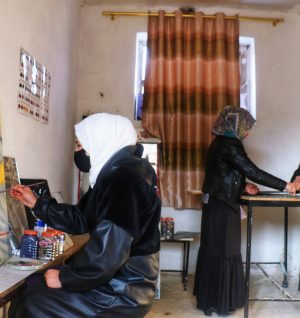
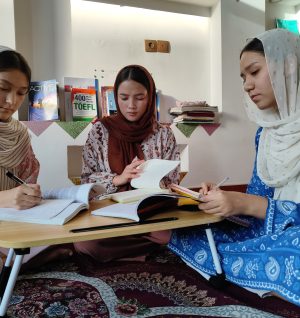
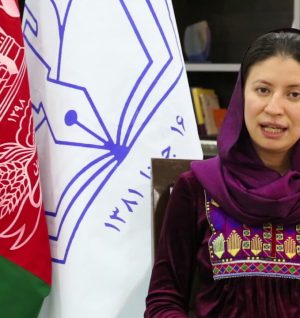
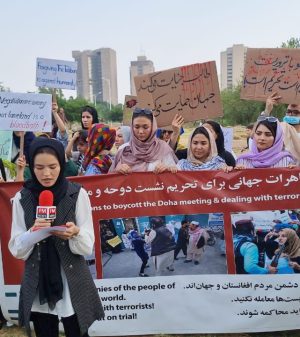
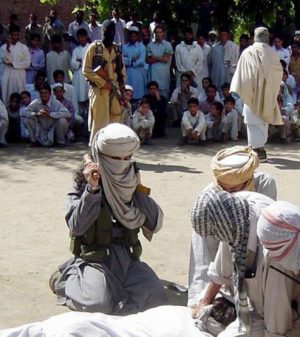
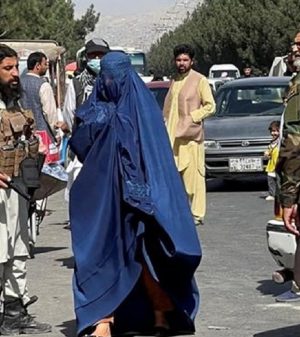
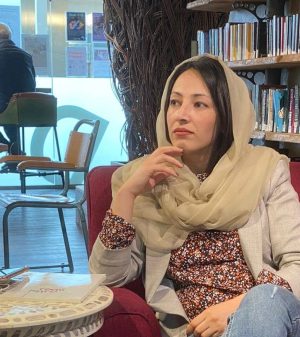
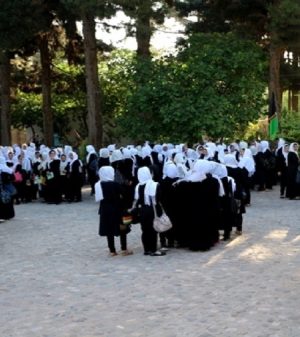
Add Comment